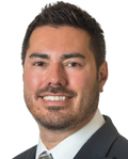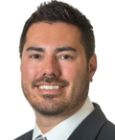Relationships
Question 2: Does the state have an interest in treating same-sex and opposite-sex couples differently? (Part 4)
Should gays and lesbians be treated differently under the law?
Posted September 16, 2010
In his verdict, Judge Walker indicated that the evidence presented in the trial focused on three broad questions. In today's blog I am going to summarize the evidence on the second question: Whether any evidence shows California has an interest in differentiating between same-sex and opposite sex unions.
In regards to this question, Judge Walker synthesized the evidence presented at trial. Below I substantially quote from the verdict to further summarize the argument, and I again encourage interested readers to examine it in full themselves. You can download his full verdict on the IMPACT Program's webpage.
Expert witnesses were called by both sides to present evidence about the question of if same-sex and opposite-sex couples should be treated differently under the law.
Plaintiffs' experts testified that no meaningful differences exist between same-sex couples and opposite-sex couples. The Proponent's witness, Mr. Blankenhorn, identified one difference: some opposite-sex couples are capable of creating biological offspring of both spouses while same-sex couples are not.
Psychology Professor Dr. Gregory Herek defined sexual orientation as "an enduring sexual, romantic, or intensely affectional attraction to men, to women, or to both men and women. It's also used to refer to an identity or a sense of self that is based on one's enduring patterns of attraction. And it's also sometimes used to describe an enduring pattern of behavior." Herek explained that homosexuality is a normal expression of human sexuality; the vast majority of gays and lesbians have little or no choice in their sexual orientation; and therapeutic efforts to change an individual's sexual orientation have not been shown to be effective and instead pose a risk of harm to the individual. Proponents did not present testimony to contradict Herek but instead questioned him on data showing that some individuals report fluidity in their sexual orientation. Herek responded that the data proponents presented does nothing to contradict his conclusion that the vast majority of people are consistent in their sexual orientation.
UCLA Psychologist Dr. Peplau pointed to research showing that, despite stereotypes suggesting gays and lesbians are unable to form stable relationships, same-sex couples are in fact indistinguishable from opposite-sex couples in terms of relationship quality and stability. She also testified that the ability of same-sex couples to marry will have no bearing on whether opposite-sex couples choose to marry or divorce.
Economist Lee Badgett testified that same-sex and opposite-sex
couples are very similar in most economic and demographic respects.
Columbia University social epidemiologist Dr. Ilan Meyer testified about the harm gays and lesbians have experienced because of Proposition 8. Meyer explained that Proposition 8 stigmatizes gays and lesbians because it informs gays and lesbians that the State of California rejects their relationships as less valuable than opposite-sex relationships. Proposition 8 also provides state endorsement of private discrimination. According to Meyer, Proposition 8 increases the likelihood of negative mental and physical health outcomes for gays and lesbians. I covered some of this research in one of my previous blogs.
Psychology Professor Dr. Michael Lamb testified that all available evidence shows that children raised by gay or lesbian parents are just as likely to be well-adjusted as children raised by heterosexual parents and that the gender of a parent is immaterial to whether an adult is a good parent. When proponents challenged Lamb with studies purporting to show that married parents provide the ideal child-rearing environment, Lamb countered that studies on child-rearing typically compare married opposite-sex parents to single parents or step-families and have no bearing on families headed by same-sex couples. Lamb testified that the relevant comparison is between families headed by same-sex couples and families headed by opposite-sex couples and that studies comparing these two family types show conclusively that having parents of different genders is irrelevant to child outcomes. I described some of this research in one of my past blogs.
Lamb also presented evidence that children who do not have a biological link to their parents are just as likely to be well-adjusted as children raised by their biological parents.
Several experts testified that the State of California and California's gay and lesbian population suffer because domestic partnerships are not equivalent to marriage. Badgett explained that gays and lesbians are less likely to enter domestic partnerships than to marry, meaning fewer gays and lesbians have the protection of a state-recognized relationship. Both Badgett and San Francisco economist Edmund Egan testified that states receive greater economic benefits from marriage than from domestic partnerships. Meyer testified that domestic partnerships actually stigmatize gays and lesbians even when enacted for the purpose of providing rights and benefits to same-sex couples. Harvard Historian Cott explained that domestic partnerships cannot substitute for marriage because domestic partnerships do not have the same social and historical meaning as marriage and that much of the value of marriage comes from its social meaning. Peplau testified that little of the cultural esteem surrounding marriage adheres to domestic partnerships.
Proponents' cross-examinations of several experts challenged whether people can be categorized based on their sexual orientation. Herek, Meyer and Badgett responded that sexual orientation encompasses behavior, identity and attraction and that most people are able to answer questions about their sexual orientation without formal training.
After reviewing the testimony presented at trial, Judge Walker concluded, "the testimony shows that California has no interest in differentiating between same-sex and opposite-sex unions."
Dr. Mustanski is the Director of the IMPACT LGBT Health and Development Program at the University of Illinois at Chicago. You can follow the Sexual Continuum blog by becoming a fan on Facebook




